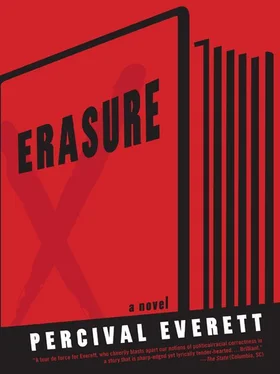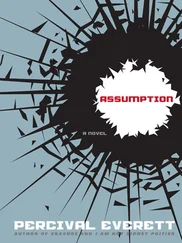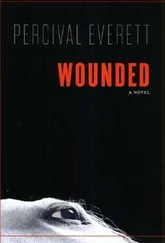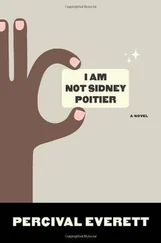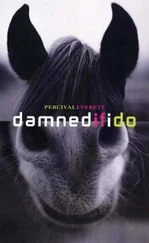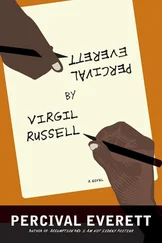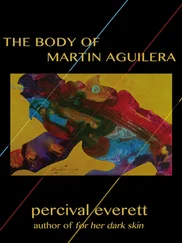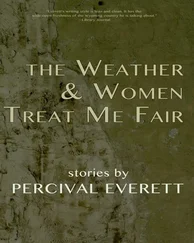I just looked at him.
He studied my ten-year-old face, then smiled. “I’m not as old as it sounds, I believe.” He opened another letter, read it and tossed it. “It would of course be a shame to get too old. There’s no virtue in living too long. Living shouldn’t become a habit.” By now he was talking more to himself than to me. “Tomorrow night. Tomorrow night, we’ll go out and get you some oysters.”

We are told that the subject of the statement should not be taken as synonymous with the author of the formulation— either in substance, or in function. This is, my theoretical friends have told me, a characteristic of the enunciative function. The statement with which I was concerning myself was the box containing the letters of my father. Was it something my mother was attempting to tell me about my father? Or rather, was it more ingenious, as brother Bill would have had me believe, a message from my father, his knowing that Mother would not in fact burn the box and would somehow get it to me? As I got Mother ready to go to Lorraine’s wedding I went over and over again the contents of that box, wondering what if anything I was supposed to do and at whose behest. Knowing Father, perhaps I was only supposed to learn some lesson about life, not take literally any concern about tracking down some lost half-sibling. Indeed, I knew him to be short-patienced when it came to, as he put it, “vulgar, common and simple-minded devotion to rudimentary biological relationships.”

“So, Mother, what do you think of Lorraine getting married?” I asked as we walked to the car.
“A bit sudden.”
“She seems happy.”
“I don’t think she knows what she’s doing. What does she know about relationships? She’s never had one. And this boy.”
“He’s almost seventy, Mother.”
“Oh, well, he looks young. I don’t know, Monksie. I guess it’s a good thing. I won’t be around forever to care for Lorraine.”
“Let’s not talk like that,” I said as I closed her door.
I was putting the key in the ignition. We were taking the car even though Maynard’s house was just a quarter mile away, just outside the community.
“I think they’re having sex,” Mother said.
I said nothing.
“What do you think?”
“I think it’s their business.”
“Hmmmph.”
 Wittgenstein: Why did Bach have to sell his organ?Derrida: I don’t know. Why?Wittgenstein: Because he was baroque.Derrida: You mean because he composed music marked by elaborate and even grotesque ornamentation?Wittgenstein: Well, no that’s not exactly what I was getting at. It was a play on words.Derrida: Oh, I get it.
Wittgenstein: Why did Bach have to sell his organ?Derrida: I don’t know. Why?Wittgenstein: Because he was baroque.Derrida: You mean because he composed music marked by elaborate and even grotesque ornamentation?Wittgenstein: Well, no that’s not exactly what I was getting at. It was a play on words.Derrida: Oh, I get it.

When we arrived at Maynard’s house, Lorraine was standing in the yard and yelling back at her husband-to-be who was standing on the porch. “How dare you call me old, you fossil!” is what she yelled.
Nothing’s easy. Least of all being confronted with one’s own questionable agenda, however unworked out or articulated. In a flash, I was washed with guilt as I considered that on some level, this was all my plan, that I wanted to marry off Lorraine and commit Mother and get on with my life. Indeed, I did want to marry off Lorraine and indeed I wanted to do so, so that I would not have to look after her in her remaining years. But I truly did not want to commit Mother. That was a lie to myself. On some level, given her condition, I wanted very much to commit her and for as much my sake as hers. I was also troubled by the word commit. One commits murder or suicide, permanent things. The finality of my admitting her to the retreat in Columbia loomed large in my thinking and feeling.
Mother remained seated in the car while I approached Lorraine, asking the stupid but appropriate question, “Is there something wrong?”
“Yes,” she cried. “That old coot called me old.”
“That ain’t what I said,” Maynard said, calmly. He leaned against a post. “I told her to let my nieces take care of the food because she needed her rest.”
“He said it again,” Lorraine said.
“Said what?” I asked.
“He called me old.”
“No, he called his nieces younger,” I said.
“He called me old,” she cried.
“Damnit, Lorraine, you are old,” I said.
The look on Lorraine’s face cannot adequately be described and that is description enough.
“Hold on there,” Maynard said, walking to Lorraine. “That’s awfully rough, what you said to my bride. Who are you to call her old?” He put his arms around her. Lorraine hugged him back.
Mother had gotten herself out of the car now. “If Lorraine is old, what does that make me?” she asked.
I looked at each of their faces, then settled on Maynard’s. “Where’s the preacher?”
“Everybody’s in the house,” he said.
“Well, come on,” I said, cheerfully. “Let’s have ourselves a wedding.”
 D. W. Griffith: I like your book very much.Richard Wright: Thank you.
D. W. Griffith: I like your book very much.Richard Wright: Thank you.

Somewhere in Hollywood, Wiley Morgenstein smoked a cigar and contemplated the commercial value of My Pafology. He sat poolside with a big man from New Jersey with whom he attended two years of school at Passaic Junior College thirty years earlier.
Wiley smiled and relit his cigar. “They go to the movies now, these people. There’s an itch and I plan to scratch it.”
“Feel like some shuffleboard?”
“It’s a damn good book, too. This one will get me taken seriously.”
“Who’s the blonde in the jacuzzi?”
“I’ve gotta meet the writer though. I want to know the hand that wrote this book. You know what I mean?”
“I’m going to ask her her name.”

The dynamics of the joyous occasion were all too apparent upon our entering the house. The faces of those who bore resemblance to Maynard were unsmiling and easy to read. The faces asked, Why is this old maid marrying poor old Maynard? For his meager savings? Still, there was an attempt at cordiality which was slightly more than admirable and somewhat less than fully hypocritical. There were six of them, a daughter and her husband, three nieces, and a sister-in-law. There was a table of food and a television tuned to a baseball game. The son-in-law sat eyes fixed on the game. I asked him who was playing and he said he didn’t know and it became clear that he was not watching the game but seeking to seep into the screen, away from the scene at hand. I sat beside him and watched my mother engage rather comfortably in small talk.
“This ain’t gonna happen,” he said.
I looked at him.
“This wedding, it ain’t happening.”
“Why do you say that?”
He pointed across the room. “See her? That’s my wife. She’s Maynard’s daughter. She hates Lorraine. I was up all night listening to how much she hates Lorraine.”
I studied the daughter, the way she cut glances at Lorraine.
“I’m Leon.”
“Monk.” I shook his hand.
“So, you’re related to Lorraine?”
“She works for us.”
He looked at me.
“She’s our housekeeper.”
“Your maid?”
Читать дальше
